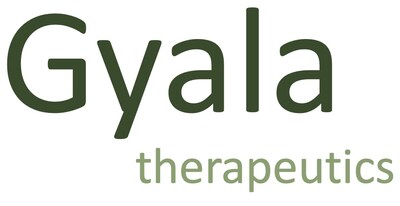
BARCELONA, Spain, Sept. 15, 2025 /PRNewswire/ -- Gyala Therapeutics, a biotechnology company developing next-generation immunotherapies for blood cancers, announced the publication of preclinical results demonstrating the efficacy of its CAR-T therapy, GYA01, in Leukemia. The study is the first to show preclinical data of CAR-T cells targeting the CD84 protein, validating GYA01 as a promising therapy for AML and T-ALL and positioning CD84 as a novel target with broad potential across hematological cancers.

AML represents about 30% of adult leukemias, with roughly 145,000 new cases annually worldwide. While chemotherapy induces remission in many patients, nearly half relapse. T-ALL, though rare, accounts for 15% of pediatric ALL and up to 25% in adults. Children often respond well to chemotherapy, but adult survival remains only ~40%. For relapsed or refractory patients, therapeutic options are extremely limited.
Key preclinical findings of GYA01:
The study confirms that CD84 is consistently overexpressed in AML and T-ALL, including high-risk subtypes such as TP53-mutated or MECOM-rearranged AML. CD84 is also highly expressed in chronic lymphocytic leukemia and aggressive B-cell lymphomas, with limited expression in healthy tissues—making it a compelling target beyond the B-cell malignancies where CAR-Ts are currently approved.
"The preclinical evidence confirms that GYA01 is a highly promising CAR-T therapy, supports CD84 as a pan-hematological target, and establishes a strong foundation for advancing to clinical trials," said Dr. Nela Klein-Gonzalez, Chief Medical Officer of Gyala Therapeutics and lead author of the publication.
Claudio Santos, PhD, CEO of Gyala Therapeutics, added: "Our next goal is to launch a clinical trial of GYA01 in AML patients at Hospital Clinic Barcelona and Hospital La Fe in Valencia, bringing this therapy to patients with aggressive leukemias who lack alternatives."
The program leverages the expertise of Hospital Clinic Barcelona, a pioneer in CAR-T therapies under the leadership of Dr. Manel Juan, as well as key contributions from Hospital La Fe, which performed CD84 expression analyses in AML and healthy bone marrow samples.
To initiate the Phase I trial, Gyala secured a €3 million financing round with participation from Invivo Partners (its founding investor), Nara Capital, and CDTI Innovación through the Innvierte program. This investment exemplifies how collaboration between seasoned investors and Spain's academic excellence can translate breakthrough science into clinical innovation.
Academic foundations behind GYA01
Founded in 2020 as a spin-off of Hospital Clinic Barcelona and the August Pi i Sunyer Biomedical Research Institute (IDIBAPS), Gyala builds on more than a decade of CAR-T research led by Dr. Juan. The institutions have treated over 500 patients with CAR-T therapies, including ARI-0001 (for adult ALL) and ARI-0002h (for multiple myeloma), both approved in Spain under hospital exemption. This expertise underpins the development of GYA01 and highlights Spain's leadership in academic-to-clinic CAR-T innovation.
About Gyala Therapeutics
Gyala Therapeutics is developing next-generation immunotherapies for hematological cancers with high unmet need. Its lead program, GYA01, is a first-in-class CAR-T therapy targeting CD84, a protein overexpressed in AML, T-ALL, and other blood cancers. To date, Gyala has raised around €8 million through Invivo Partners, Nara Capital, and CDTI Innvierte, as well as national innovation programs including NEOTEC and Public-Private Collaboration Projects. More information at: www.gyalatx.com.
Photo: https://mma.prnewswire.com/media/2771080/Gyala_Therapeutics.jpgLogo: https://mma.prnewswire.com/media/2771079/Gyala_Therapeutics_Logo.jpg
Investor contact:Claudio Santos, PhDclaudio.santos@gyalatx.com+34602672187
Media contact: Gemma Escarré Comms gyala@gemmaescarre.com+34667761524



Comunicato stampa sponsorizzato - Responsabilità editoriale PrNewswire. I giornalisti Adnkronos non sono in nessun modo coinvolti né responsabili per i contenuti dei comunicati trasmessi.